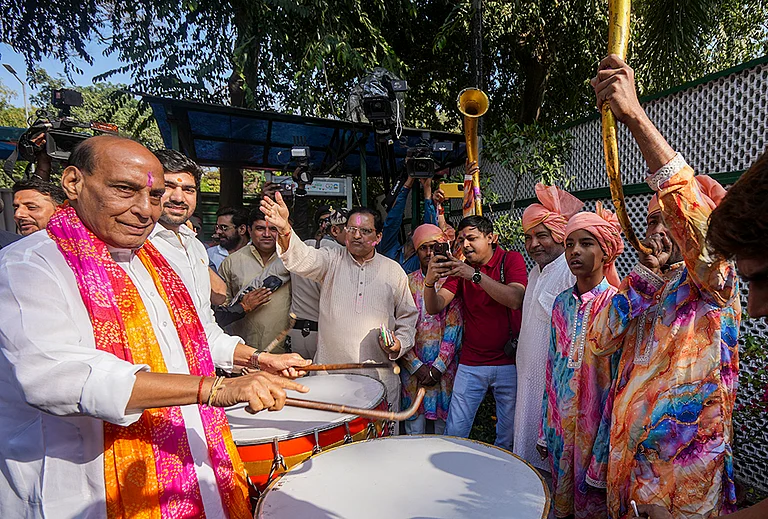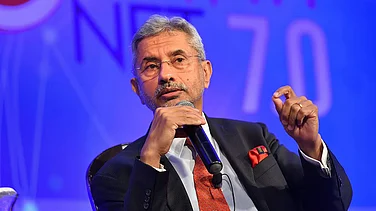The pandemic called for adapting to disruptive changes, including equipping ourselves with digital technology. But it has not been a level playing field, given the huge digital divide in the country. It means that access to learning has been hugely impacted. This impact becomes even more pronounced in the case of skilling that calls for hands-on training. When the pandemic struck, the first thought that came to everyone’s mind was, “Will it all stop? Will learning come to a halt?” It did not and it must not. Resilience is what defines us. So, everyone at the policy level started contemplating about viable options. In my capacity as the then Mission Director of the Jammu and Kashmir Skill Development Mission, I explored the possibility of starting online skilling under existing schemes such as Pradhan Mantri Kaushal Vikas (PMKVY), implemented by the Mission. However, many changes at the policy and implementation level were required to transit from the offline to the online training. In a country that is radically unequal in accessibility and availability of Information and Communications Technology (ICT) devices, online training is an onerous task and there is every chance that the marginalised communities could be left out.

Since training centres were closed due to COVID restrictions, I convened a series of consultative meetings online with our training providers to find a way to start some sort of skill activity. As there was no provision for online skilling under the existing schemes, we decided to create a new online skill programme titled “COVID-19: Let’s sKill It”. Twelve training partners volunteered to run these short-term training courses in job roles such as internet and web design, graphic design, Goods and Services Tax (GST), beauty and makeup, entrepreneurship development, customer care, and cyber security. The programme saw an overwhelming response with the participation of not only unemployed youth but also professionals like doctors, engineers, teachers, businessmen, and scholars from inside and outside J&K.

With cases coming down in mid-2021, skill training under centrally sponsored schemes was formally resumed all over the country after a gap of 15 months in June 2021. However, the training centres are again being closed due to restrictions, putting a question mark on the future of skilling in India. Educational institutions and private coaching centres have all shifted to an online mode of instruction. However, it seems skill-aspirants will have to wait for an opportunity to learn and enter the job market. The question remains: will COVID further marginalise India’s skill aspirants? This seems likely. There are no alternative mechanisms of skilling, especially for those who don’t have access to online education due to the lack of the internet, smartphones, and digital literacy. In India, only 4.4 rural households have a computer, against 23.40 per cent in urban areas, with just 14.9 per cent of rural households having access to the internet against 42 per cent households in urban areas. Similarly, only 9.9 per cent people of over five years of rural areas can operate the computer and 13 per cent people can use the internet against 32. 4 per cent (NSS 2017-18).This gap between the digital divide and access to virtual education and training is unlikely to change anytime soon. Therefore, we have to understand the challenge and find out-of-the-box solutions. Here are a few possible interventions I propose for the implementation of public-funded skill training programmes in the time of pandemic.
Data-Driven Policy
There is presently no data available regarding the availability of the internet and smartphones among the public-funded programme skill aspirants or enrolled candidates. As a result, surveys of mobile and internet penetration among young skill aspirants in the marginalised communities and geographies are required. Furthermore, research on the impact of COVID on skill training programmes might be undertaken in general. Importantly, the study may chronicle the lessons learned over the previous two years and draw out a strategy for offering continuous skilling.
Dual Mode of Skilling
Since the Ministry of Skill and Entrepreneurship Development has already approved the Dual System of Training (DST) in industry-relevant trades in ITIs, the same system could be adopted in short-term training (STT) programmes implemented by various ministries. Training Centres can tie up with industries (service or manufacturing) in their local area to provide them with hands-on training, while the theory part could be imparted by TCs online. This would be in a similar pattern to the B-Voc programme offered by a few skill universities.
Skilling on the Pattern of Apprenticeship
The National Apprenticeship Promotion Scheme (NAPS) has shown great progress and offers a prospect for gainful employment of skilled youth. By making short-term training (STT) eligible for apprenticeship under NAPS, the Centre has already opened a window for the training of candidates by industry under this scheme. By expanding the scope of NAPS, STT under public-funded programmes can be provided in local industries. This could be a combined model of the NAPS and Udaan scheme earlier implemented in Jammu and Kashmir, wherein industry would train and employ people.
Technological Solutions
Turning a problem into an opportunity, various skill training start-ups have started imparting training using Augmented Reality (AR) and Artificial Intelligence (AI) and other technology-driven solutions to provide hands-on training virtually. The state can create such a platform to provide skilling to the people. Local Panchayat Ghars and schools can also be roped in to provide support for this programme.
Online Skilling in Selected Trades
There are over 1200 registered trades under STT, of which a significant number of trades can be offered online. We have demonstrated it in Jammu and Kashmir in 2020 under the “Covid 19: Let’s sKill It” programme. However, online technology also demands a more robust and relevant monitoring framework so that training is imparted to the intended beneficiaries efficiently. Moreover, if it happens, the transition to the online mode of skilling should try to bring in elements that are being lost because of on-campus classes, like peer learning and communication.
Tail Piece
Major public-funded skill development schemes in India are in principle aimed at mainstreaming and including school and college dropouts into the labour force by providing them with skills training. It is crucial that the poor and marginalised individuals, who are to benefit the most from these schemes, should not be deprived of skill-building opportunities for gainful employment. They cannot be held hostage to a ‘new lack’: a determined public policy for Dual-Mode training. Let the pandemic not deprive them of their right to skill.
Dr Peer GN Suhail is an International Development Policy Analyst and Former Mission Director and CEO of Jammu and Kashmir Skill Development Mission. Views expressed in this article are personal and may not necessarily reflect the views of Outlook Magazine.)

















